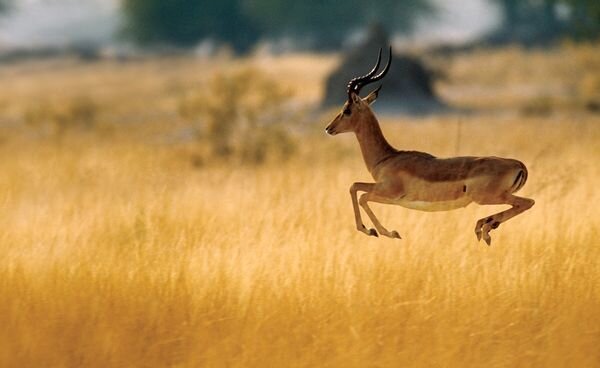Biodiversity conservation, an asset to fight coronavirus

TEHRAN – Loss of natural habitats is the reason behind the outbreak of zoonotic diseases so that biodiversity protection is a great tool to fight epidemics such as coronavirus.
In a message on the occasion of The International Day for Biological Diversity, Kioumars Kalantari, head of the natural environment and biodiversity of the Department of Environment stressed that the most unique feature of the planet is the existence of life on the planet and the most amazing aspect of life is biodiversity.
“The term biodiversity encompasses all forms of life on Earth at all levels, from genes to ecosystems, which provides evolutionary, ecological, and cultural processes for the enrichment and stabilization of life.
Biological diversity by providing essential components and infrastructure of life including food, water natural resources, healthy climate, soil formation, and protection against natural hazards and diseases (through climate change, floods, pests and...), especially in agriculture and industry, has played a significant role in the formation and prosperity of human societies,” Kalantari wrote.
The United Nations has proclaimed May 22 “The International Day for Biological Diversity” to increase understanding and awareness of biodiversity issues. When first created by the Second Committee of the UN General Assembly in late 1993, December 29 (the date of entry into force of the Convention of Biological Diversity), was designated The International Day for Biological Diversity.
In December 2000, the UN General Assembly adopted May 22 as IDB, to commemorate the adoption of the text of the Convention on May 22, 1992, by the Nairobi Final Act of the Conference for the Adoption of the Agreed Text of the Convention on Biological Diversity.
This year the Biodiversity Day 2021 theme is “We’re part of the solution”. From nature-based solutions to climate, health issues, food and water security, and sustainable livelihoods, biodiversity is the foundation upon which we can build back better.
Biodiversity matters to stop future pandemics
Bats, civets, pangolins, and snakes have all been rounded up as potential suspects for the COVID-19 outbreak at some point. But when the smoking gun is finally found, it is likely to have the fingerprints of us - humans - on it, according to UNDP.
Major outbreaks of zoonotic diseases (infectious diseases caused by pathogens jumping from animals to humans) are associated with the increasing loss of natural habitats. Research suggests that as the habitats of (disease) host populations disappear, those hosts become less available, creating an incentive for diseases to jump to other species. Outbreaks like Ebola and HIV also emerged from areas where forests, among the biodiverse habitats of our planet, were disappearing.
In fact, when biodiversity is in trouble, so is humanity. It should also be noted that biodiversity does not only include wildlife. This fundamental fact involves genetic differences in each species - for example, between different types of livestock products or even ecosystems (lakes, forests, deserts, agricultural areas).
Fish provide about 20 percent of animal protein for three billion people, and 80 percent of the human diet is provided by a variety of plants, so the loss of biodiversity threatens many things, including human health. It has been proven that biodiversity damage can spread diseases transmitted from animals to humans.
Biological diversity protection in Iran
To preserve the existing biodiversity over the wide geographic expanse of Iran, four types of areas have been designated for preservation and protection, including, national parks, wildlife refuges, protected areas, and natural national monuments. In 1997, the DOE held supervision over 7,563,983 hectares of such areas.
Currently, the supervised areas reached about 18.5 million hectares, including, 30 national parks, 170 protected areas, 45 wildlife refuges, and 37 national natural monuments.
Iran has a high diversity of species due to geographical conditions, climatic diversity, huge water resources of the Caspian Sea in the north and the Persian Gulf, and the Sea of Oman in the south.
According to the latest studies, about 1,300 species of vertebrates, including mammals, birds, reptiles, amphibians, and aquatic fish, about 30,000 species of invertebrates, and 8,000 species of plants have been identified in the country.
Unfortunately, over the past two decades, human activities have led to alarming degradation of ecosystems, deletion of genes, species, and biological capabilities; Human threats to biodiversity have accelerated the most over the past 50 years over the entire history of human life.
According to the United Nations, three-quarters of the Earth's environment and about 66 percent of the marine environment have been altered by human activities, and the latest report by the Intergovernmental Science-Policy Platform on Biodiversity and Ecosystem Services (IPBES) states that more than one million species of animals and plants are in danger of extinction.
Therefore, any planning and action in the direction of optimal and principled management of biodiversity protection in the country, interaction and continuous cooperation of responsible bodies, and benefiting from international opportunities and their financial and professional resources can play a very important and key role in maintaining biological diversity alongside sustainable development.
We hope that with the common determination of officials and policymakers, the people, the media, and environmental activists, will preserve and protect this valuable asset for future generations.
FB/MG
Leave a Comment